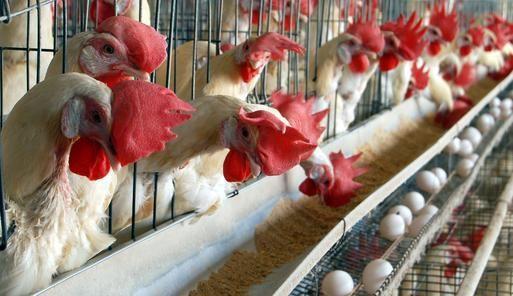Poultry: How Farmers and Entrepreneurs in India are Developing the Industry
Egg and poultry meat are inexpensive sources of protein, especially across different socio-economic groups in developing countries. In Africa as well as South Asia, nearly 85% of poultry farms are owned by small-scale producers who run them as family businesses in rural regions. The poultry sector is unorganized, with indigenous farming methods and ineffective animal health care services. Improved basic infrastructure, efficient advisory services coupled with advanced research & development could help promote commercial poultry sector in these regions.
At the launch of the Connect to Grow platform at the SEED Symposium in Nairobi, Anisha Singh, a team member of the KEGG Farms enterprise shared the opportunity of transforming traditional low-yielding backyard poultry, into a more organized, high impact micro enterprise format. This discussion highlighted a wide interest in the possibility of integrating innovations from India in this sector. So we are taking the opportunity to share a little bit more about what’s happening in this sector, within India – and if its useful, other enterprises from African and South Asian countries could register on the Connect Marketplace, to set up partnerships for their own regions.
How can African and South Asian countries benefit from Poultry farming in India?
Poultry in India has made a transition from backyard poultry to highly organized business activity over the span of four decades. Egg and broiler production in the country is increasing at a rate of 8-10% per annum. In India, the average annual production of poultry meat is about 2 million MT and eggs is 3.5 million MT. Both, the Government and private enterprises are driving innovation in the Indian poultry sector, making it possible for South Asian and African countries to establish partnerships and collaborations for an exchange of learning, technologies, methods and markets. Our countries share notable similarities in terms of climate and socio-economic conditions, making poultry a source of small scale livelihood, low cost protein nourishment and an environmental benefit.
The Government and the Private Enterprise in Poultry
In India, rural poultry farming contributes to about 40% of total egg production in India. It receives Government support through the State-run co-operatives and largely depends on rearing native breeds like Aseel and Kadaknath. Rural poultry farming provides livelihood and food security for local rural populations while promoting the agrarian economy of the country.
Private enterprises and businesses in India have also been proactive in the research & development of parent stock (both indigenous and international breeds), meat breeds and egg layers. Venkateshwara Hatcheries, Suguna Foods and Skylark Hatcheries. have developed international poultry breeds to suit Indian environmental conditions. A number of bird hybrids including hyline are reared for rapid growth, feed efficiency and higher profits. Kegg Farms has developed a hybrid,high-yielding variety bird called the Kurolier.
Rapid growth of the industry has highlighted that the nutritional value of the poultry feed as well as the diet has a direct impact on the quality of poultry meat and eggs produced. Innovative Soch has developed a feed named I-Protein that acts as an excellent source of protein to layers, broiler, duck, quail and turkey diets. Bio-technology and bio-security are other emergent areas in poultry farming. Polchem Innovative Solutions and Vetline are private firms that endeavor to ensure animal health with nutritional products.
Bird farms or hatcheries require effective and efficient management. Kishore Farm Equipment and Dhumal Industries are leading firms who have developed auto feeding systems, watering systems, climate control, flooring and brooding systems designed for Indian markets to ensure efficient poultry farming.
Incubators
Innovation developed by Lifeway Solar Devices in traditional day-old chicks has augmented the supply chain among rural farmers. The patented ‘Solar Poultry Incubators’ is developed exclusively to offer self-employment opportunities to unemployed woman from rural India. The semi-Automatic unit hatches 40 chicken/80 Quail/14 Goose eggs per incubation cycle of 18-22 days period. Its proven as a successful rural livelihood alternative. Government subsidies and financial assistance are also being granted to farmers for purchasing the devices.
Eggs
Once a traditional commodity in Indian markets, eggs are now branded shelf products; retailed at supermarkets. Several innovations have helped develop different varieties of eggs with specific nutritional value. Suguna Foods has developed 4 value added specialty egg varieties namely Active, Pro, Shakthi and Heart which are enriched with special nutrients like omega 3 fatty acids, selenium, vitamins and minerals.
As briefly illustrated in the examples above, the poultry sector in India has several innovative solutions to contribute to other similar regions. Connect to Grow is seeking to support collaborative partnerships in Poultry between Poultry Industry Innovators from India and Enterprises in African and South Asian Countries that wish to expand the economic and social impact of poultry rearing in their regions.
If you are an established African or South Asian enterprise who wishes to access technical and financial support you to build a partnership with an Indian Enterprise in this sector please register on our online marketplace.
If you have any questions about the programme please email info@connecttogrow.org.
